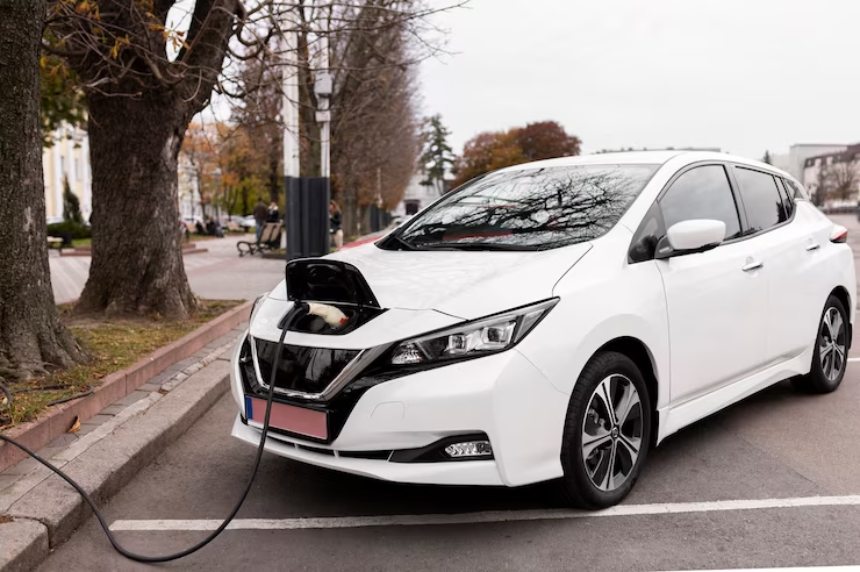The automotive landscape is undergoing a dramatic shift, and electric cars are at the forefront of this transformation. But for many, these futuristic-looking vehicles remain shrouded in mystery. So, what exactly is an electric car? Buckle up, as we delve into the world of EVs, exploring their technology, benefits, and potential impact on our future.
Under the Hood: The Electric Engine
Unlike their gasoline-powered counterparts, electric cars (EVs) ditch the internal combustion engine altogether. Instead, they rely on an electric motor powered by a large, rechargeable battery pack. This battery stores electricity like a giant phone, providing the energy to propel the car forward. When you press the accelerator, the battery sends electricity to the motor, which converts it into kinetic energy, turning the wheels and moving the car.
Different Types of Electric Cars:
The EV world isn’t a one-size-fits-all affair. There are three main types of electric cars, each with its own unique characteristics:
- Battery Electric Vehicles (BEVs): These are the pure electric cars, powered solely by batteries and emitting zero tailpipe emissions. They offer a range of driving distances, typically between 200 and 500 kilometers (124-310 miles) on a single charge, depending on the model and battery size.
- Plug-in Hybrid Electric Vehicles (PHEVs): These combine an electric motor with a gasoline engine. They can operate on electric power for shorter distances, offering the convenience of electric driving for daily commutes, while the gasoline engine kicks in for longer journeys.
- Fuel Cell Electric Vehicles (FCEVs): These EVs use hydrogen fuel cells instead of batteries. The hydrogen reacts with oxygen to produce electricity, powering the motor and emitting only water vapor. However, the hydrogen infrastructure is still in its early stages of development.
Charging Up: Fueling the Electric Revolution
Just like filling up your gas tank, recharging your EV is crucial. There are several ways to do this:
- Home Charging: Most EVs come with a charging cable that allows you to plug them into a regular home outlet. However, dedicated home charging stations offer faster charging speeds.
- Public Charging: Public charging stations are becoming increasingly common, offering various charging speeds and payment options. You can find them at malls, parking lots, and even workplaces.
- Fast Charging Stations: These stations can significantly reduce charging time, often replenishing the battery in 30 minutes or less. However, they are less widely available and typically cost more.
Benefits of Going Electric:
There are numerous advantages to choosing an electric car:
- Environmentally Friendly: EVs produce zero tailpipe emissions, contributing to cleaner air and reduced greenhouse gas emissions.
- Cost-Effective: Electricity is often cheaper than gasoline, and EVs have lower maintenance costs due to fewer moving parts.
- Quiet and Smooth Ride: EVs offer a quieter and smoother driving experience compared to gasoline cars.
- Performance: Electric motors provide instant torque, resulting in a more responsive and exhilarating driving experience.
- Government Incentives: Many governments offer tax credits and other incentives to encourage EV adoption.
Challenges and Considerations:
While EVs offer a promising future, there are some challenges to consider:
- Range Anxiety: The fear of running out of battery before reaching a charging station is a concern for some drivers. However, improvements in battery technology and the expanding charging infrastructure are alleviating this anxiety.
- Charging Time: Although fast charging is becoming more prevalent, charging an EV generally takes longer than filling a gas tank.
- Upfront Cost: EVs typically have a higher upfront cost compared to gasoline cars, although government incentives and lower operating costs can offset this difference over time.
The Future of Electric Cars:
The future of transportation is undoubtedly electric. With advancements in battery technology, charging infrastructure, and government support, EVs are poised to revolutionize the way we travel. As the technology matures and costs become more competitive, we can expect to see wider adoption of electric cars, leading to cleaner air, quieter cities, and a more sustainable future.

